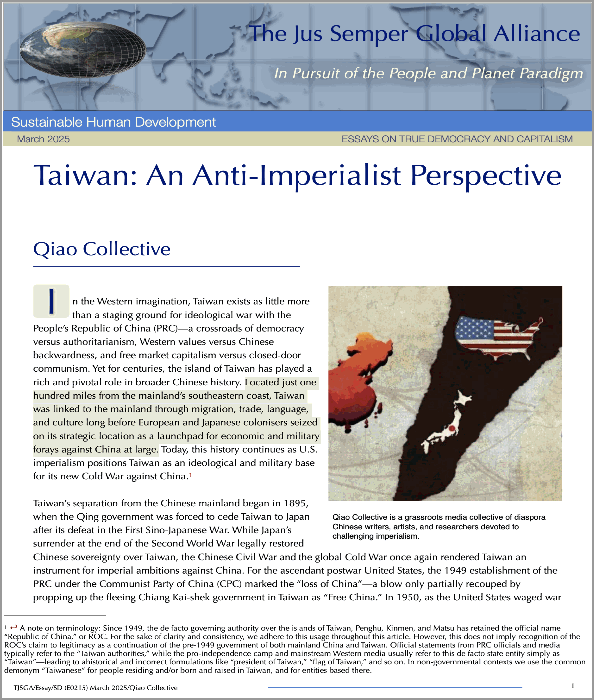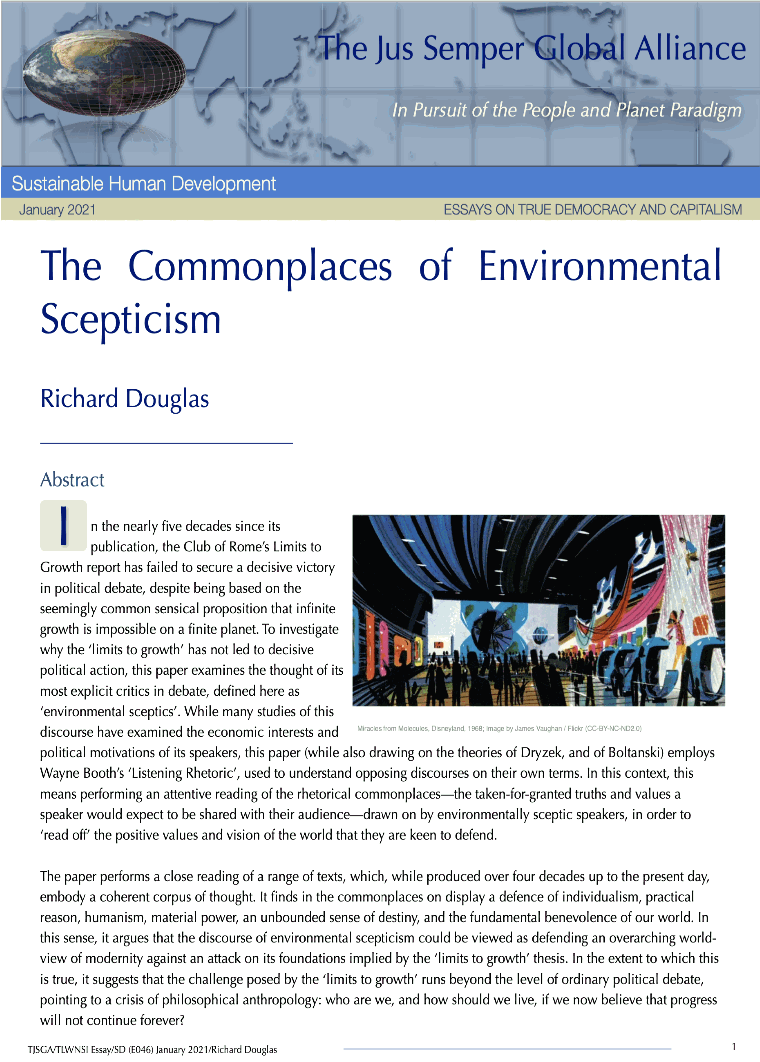Scepticism
Richard Douglas The paper performs a close reading of a range of texts, which, while produced over four decades up to the present day, embody a coherent corpus of thought. It finds in the commonplaces on display a defence of individualism, practical reason, humanism, material power, an unbounded sense of destiny, and the fundamental benevolence of our world. In this sense, it argues that the discourse of environmental scepticism could be viewed as defending an overarching world-view of modernity against an attack on its foundations implied by the ‘limits to growth’ thesis. In the extent to which this is true, it suggests that the challenge posed by the ‘limits to growth’ runs beyond the level of ordinary political debate, pointing to a crisis of philosophical anthropology: who are we, and how should we live, if we now believe that progress will not continue forever?
For a full read of this brief, click here or on the picture to download the pdf file.
|

- © The Jus Semper Global Alliance
| Home |  | Resources |  | Economic Data |  | The Commonplaces of Environmental Scepticism |


